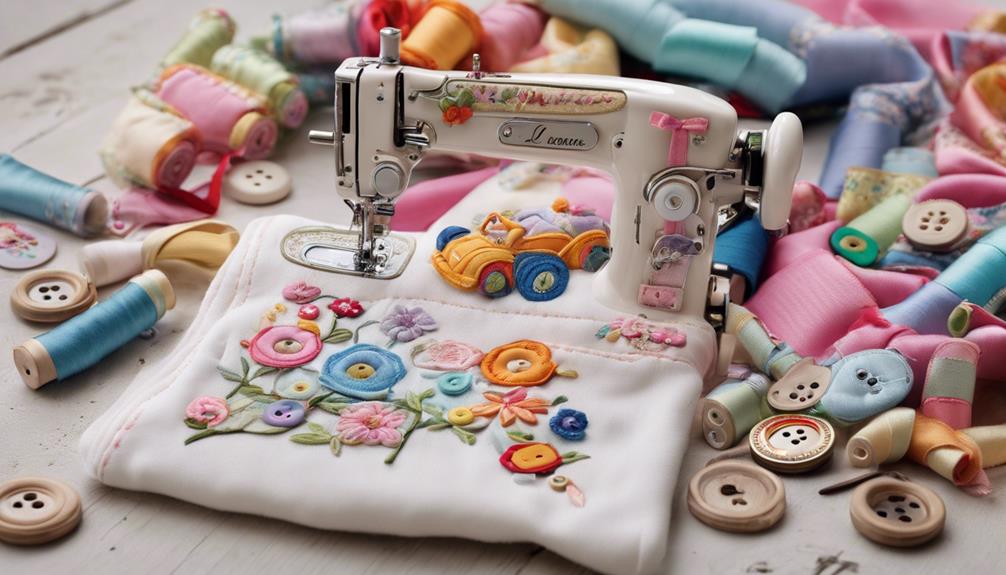As we navigate the world of newborn care, we often encounter unexpected odors akin to sulfur wafting from our little ones' diapers. This peculiar scent can lead us down a path of questions and concerns about our baby's well-being.
Are there deeper implications behind this olfactory surprise? Let's explore the mysteries that surround why newborn poop may emit such a distinctive smell and uncover the potential reasons behind this phenomenon.
Key Takeaways
- Infections like rotavirus and milk types affect sulfur smell in newborn poop.
- Malabsorption issues or gut flora imbalance can lead to sulfur-smelling poop.
- Seek medical evaluation for underlying health concerns with persistent sulfur smell.
- Ensure hydration, monitor symptoms, and consult healthcare provider for management guidance.
Possible Causes of Sulfur-Smelling Newborn Poop
Sulfur-smelling newborn poop can result from various factors, including infections, dietary influences, and gastrointestinal issues. When newborn poop smells like rotten eggs, it could be indicative of a rotavirus infection, leading to foul-smelling diarrhea with a distinct odor.
The sulfur-like scent in a baby's bowel movements might also be linked to the type of milk they're consuming, whether breast milk or formula. Additionally, malabsorption issues or an imbalance in the baby's gut flora can contribute to the sulfurous smell in their poop.
It's important to take into account these medical possibilities when encountering sulfur-scented newborn poop, as it may require medical evaluation to address any underlying health concerns. Monitoring the frequency, consistency, and smell of a baby's sulfur-smelling poop can offer valuable insights into their digestive health and help in early detection of any potential issues.
If unsure about the reasons behind the distinctive odor in your baby's poop, seeking medical advice is recommended to guarantee their well-being.
Understanding Normal Newborn Poop Odors
After exploring the factors contributing to the distinct odor of newborn poop, it's essential to understand the range of normal odors that may be present in a baby's stool.
- Breastfed vs. Formula-Fed: Breastfed newborns may have poop with a milder sulfur smell compared to formula-fed infants due to differences in how the body processes breast milk versus formula.
- Harmless Bacteria: The presence of harmless bacteria in a baby's gut can lead to the sulfur-like smell in their poop. These bacteria play a vital role in the digestion process and are typically considered a normal part of a healthy baby's gut flora.
- Monitoring Overall Health: While a sulfur smell in newborn poop is often harmless, it's important to observe the baby's overall health and growth. If the smell is accompanied by concerning symptoms such as persistent diarrhea, blood in the stool, or significant changes in the baby's behavior, it's advisable to seek medical advice to safeguard the baby's well-being.
Signs of Underlying Health Issues
Examining the presence of distinct odors in a newborn's stool can provide valuable insights into potential underlying health issues. When newborn poop smells like sulfur, it may indicate various health concerns that require attention. Below is a table outlining possible underlying health issues associated with sulfur-smelling poop in newborns:
| Underlying Health Issues | Description | Treatment |
|---|---|---|
| Rotavirus infection | Common viral infection causing foul-smelling diarrhea with a sulfur or rotten egg smell | Supportive care, oral rehydration therapy |
| Malabsorption problems | Digestive issues leading to difficulty absorbing nutrients, reflected in the stool odor | Dietary modifications, medical management |
| Bacterial infections | Bacterial overgrowth in the gut contributing to the distinctive sulfur smell in the stool | Antibiotics, probiotics, fluid replacement |
Identifying the specific cause of sulfur-smelling poop, such as rotavirus infection, malabsorption problems, or bacterial infections, is important for appropriate management. Persistent sulfur-smelling stool warrants medical evaluation to rule out conditions like lactose intolerance, celiac disease, or gastrointestinal infections, ensuring the newborn's health is prioritized.
Tips for Managing Sulfur-Smelling Poop

Upon detecting distinct odors in a newborn's stool that may signal underlying health issues, it becomes imperative to address strategies for managing such occurrences effectively.
- Guarantee Hydration: Maintain proper hydration levels in the newborn to prevent dehydration, especially if diarrhea is present due to a bacterial infection or rotavirus causing sulfur-smelling poop. Offer frequent breast or bottle feedings to keep the baby hydrated.
- Monitor for Dehydration: Watch for signs of dehydration such as decreased urine output, dry mouth, sunken fontanelle, or lethargy. If any of these symptoms are observed, seek immediate medical attention to prevent complications.
- Consult Healthcare Provider: If the sulfur smell in the newborn's poop persists or is accompanied by fever, vomiting, blood in stool, or other concerning symptoms, contact a healthcare provider for further evaluation and guidance on managing the situation effectively.
When to Seek Medical Advice
When considering the sulfur smell in a newborn's poop, immediate medical advice should be sought if the odor persists and is accompanied by concerning symptoms. A strong sulfur-like odor in a newborn's stool may indicate the presence of bacterial infections such as rotavirus or other gastrointestinal conditions. It's important to be vigilant if your newborn consistently passes stool with a foul sulfur smell, as this may necessitate medical attention.
The persistence of a sulfur smell in newborn poop should prompt a thorough evaluation by a healthcare provider to identify the underlying cause. Such a smell can serve as a warning sign for potential health concerns, highlighting the importance of seeking medical advice promptly. If you notice this distinct odor in your newborn's poop along with any worrisome signs or symptoms, don't hesitate to consult a healthcare provider for further assessment and appropriate management.
Your baby's health and well-being are paramount, and timely intervention can help address any potential issues effectively.
Frequently Asked Questions
When Should I Worry About Baby Poop Smell?
If baby poop smell strikes concern, prompt attention is vital. Foul odors may signal health troubles. Regular monitoring is key. Consult a healthcare provider if the smell persists or seems abnormal.
What Makes Poop Smell Like Sulfur?
Sulfur smell in poop results from sulfur-reducing bacteria in the gut. Foods like broccoli, cauliflower, and cabbage in breastfeeding moms or protein breakdown in formula-fed babies can cause it. Usually harmless, but seek medical advice for concerns.
Why Does My Child's Poop Smell Like Rotten Eggs?
When our child's poop smells like rotten eggs, it could indicate a rotavirus infection, common in youngsters. The sulfur-like odor comes from compounds in the infection. Seeking medical advice promptly is essential for proper diagnosis and treatment.
Why Does My Baby's Poop Smell Like Rotten Food?
When our baby's poop smells like rotten food, it might indicate a digestive issue like rotavirus infection. This can lead to symptoms such as foul-smelling diarrhea, fever, and vomiting. Seeking medical advice promptly is essential for proper diagnosis and treatment.
Conclusion
To summarize, the presence of sulfur-smelling poop in newborns can be a potent indicator of underlying health issues that require close monitoring and medical attention.
Remember, a baby's poop is like a window to their digestive health, so never underestimate the power of a stinky diaper.
Stay vigilant, stay informed, and don't be afraid to seek professional guidance when needed.
Remember, when it comes to newborn poop, the nose knows best!









